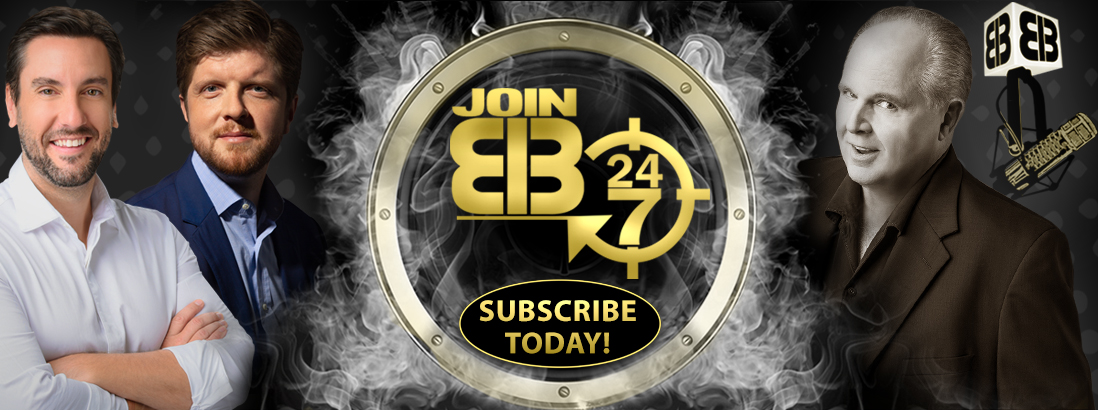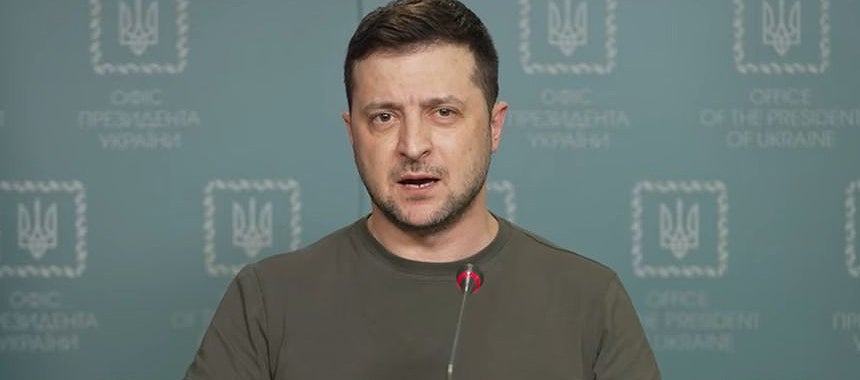Condoleezza Rice
13 Dec 2021
Archive [August 1999]

Ms. Rice was Special Assistant to President Bush for National Security Affairs. She recently stepped down as Provost at Stanford University, has been appointed a senior fellow at the Hoover Institution and advises Governor George W. Bush on foreign policy.
Rush: I’m really curious about the criticism of Governor Bush, that he just isn’t specific about anything. You’ve signed on as his foreign policy advisor. He must have been specific enough to satisfy you. What do you say to people who claim that nobody knows where he stands on issues?
Rice: People aren’t listening if they don’t think they know where he stands. First of all, he’s a governor, so he has a record. People have only to look at what he’s done in Texas, what he’s cared about in Texas, to see what some of his highest priorities are.
On the foreign policy side, I’ve become extremely comfortable with principles that guide his understanding of foreign policy. And my view is that you’d better proceed from principle as President in foreign policy, because the issues will always be swirling around you, and there will always be five different options that people are giving you. That’s a problem, unless you can come back to principle, which is what was so extraordinary about Ronald Reagan — he was able to come back to principle all the time. What’s really impressed me about Governor Bush is that he has very strong values, very strong principles, and he has good instincts about foreign policy.
Rush: In 1998 Madeleine Albright said: “We very much don’t want to be out there by ourselves as the organizer and the only superpower. People don’t believe that. They think we just want to be king of the hill, but we do not.” That might explain why they don’t feel all that bad that Chinese leaders now have nuclear weapons at their disposal. These people may think that two or three superpowers are good — because it offers stability. But in your and the Governor’s view, is there anything wrong with being the world’s only superpower?
Rice: I absolutely think there’s nothing wrong with being the world’s only superpower. I think the United States has been a force for peace and security in the world, and so if there’s going to be one superpower, I’m very glad it’s the United States. There are certain responsibilities that come with being the only superpower that the American people don’t quite seem comfortable with.
Rush: Really?
Rice: Yes. I think we do feel a little bit lonely at the top these days. It’s almost become, you know, “Trouble? Call 911-America.” And I think we rightly need to worry about being pulled into every conflict all over the world without a clear sense of where our interests would dictate our intervention. Being the sole superpower doesn’t mean you can’t work in coalitions when it’s to your benefit to do so. We worked very effectively in coalitions in the Gulf War, for instance. It doesn’t mean you have to take on every fight. Sometimes you should let others do it, or sometimes you just have to say that isn’t in the American interest.
I don’t think you have to have a kind of braggadocio. You can wear that superpower mantle with dignity and a little bit of humility. The United States is actually better than most at wearing that mantle with dignity and humility. But being the only superpower I don’t see as a danger.
Rush: They obviously do, and it strikes me that they almost feel a little guilt-laden that we are the only superpower: it isn’t fair; it isn’t just. And what about the stability argument? When people in the Clinton Administration either imply, or state directly, that the superpower status should be shared, it seems to me that they are not making a moral distinction between us as a superpower, and say, the old Soviet Union — on which you are an expert — as a superpower, or the current Chinese government as a superpower. And clearly that moral distinction has to be made.
Rice: When you talk about whether it’s a good thing for the United States to be the only superpower and should there be others, I’m most comfortable when — and I really believe this about Governor Bush, that’s one reason I signed on with him — a President of the United States believes in the essential goodness of the United States, the essential goodness of America. Then you can believe that when America acts in the international system, it’s going to do good. I think it comes from that very real belief that this is a good, special, almost unique place in human history, the United States. And so when we act on our own interests, I think we generally do it in a way that is good for the world. If you don’t believe in the essential goodness of the United States, then you are more embarrassed or nervous about American power.
Rush: Would that describe the current Administration?
Rice: I think there are differences of view in the Administration, too. I do think that perhaps some sense of embarrassment about American power, or discomfort with American power, leads them to dress everything up in a kind of international humanitarianism.
Rush: Ah. Meals-on-wheels.
Rice: Right. To be worried that if America acts on her own interests, and even has to act unilaterally sometimes, that that’s not a good thing. You always see this kind of appeal to international norms to justify the use of American power.
Rush: How big a factor do you think all this will be in the 2000 race?
Rice: Foreign policy specialists like me always think that foreign policy is going to be a major issue in the elections.
Rush: Well, it should be.
Rice: It should be, because this is an important time in history. The United States is at a unique juncture in terms of our overall power. I think foreign policy will be important. I think it won’t be among the top three or four issues.
Rush: Even with Kosovo, Bosnia, Haiti? We’ve got more deployments, the military has been cut both financially and in force structure. If that argument is made, I can see foreign policy certainly making the top five. I hope that it would, because there have been so many uses of the U.S. military which to me are dubious.
Rice: I agree completely, and I do hope it’s an issue. I think people should try and make it an issue. But it’s going to have to be reported as an issue, and it’s going to have to occupy time on the airwaves and in the media. It isn’t natural, in a sense, for the American population to make it an issue. But Americans have to understand that we are very involved in this world — in some ways that we should be; in some ways that we shouldn’t be. It ought to be an issue.
Rush: If the press does not report it as a top-five issue, will the Bush campaign attempt to make it so?
Rice: I think Governor Bush believes it is one of the most important things for the American people to understand about someone who’s asking to be their President. I think he will make it an issue, and I think he will talk about foreign policy.
Rush: You first came to public attention as a special assistant to President Bush for National Security Affairs, and I remember that one of your areas of specialization was Russia.
Rice: That’s right.
Rush: As to the Russian involvement in Kosovo — could you assess what it means as it relates to our involvement? Is any single politician, Boris Yeltsin or anybody else, in control of that military structure there?
Rice: There’s a lot of chaos in Russia. The way the Russian deployment unfolded — with the Russians coming early before we had tied down the rules of command — said to me that there was considerable chaos in the command structure. The problem with Boris Yeltsin at this point is that he’s in and out. He’s there one day trying to be decisive, then he’s not there for several days. That leaves a vacuum. He’s still a very powerful figure, but he’s not a consistent figure. You had the sense that the Russian government actually didn’t know what was going on, that the Foreign Minister was either lying or he really did not know what was going on. That kind of chaos in a country with tens of thousands of nuclear weapons is a real problem.
Rush: You have been quite critical of the foreign policy of this Administration. What is most worrisome?
Rice: That it’s inconsistent. You can go a long way in foreign policy if you say what you mean, and mean what you say, and do what you say you’re going to do. That helps you with friends and allies — and with enemies, too. We have had ups, downs, changes, and threats that don’t get carried out. Very often, I think, it’s been tied to a sense of what will fly at home — domestic polling.
I think Kosovo was so hard at the beginning because the President made a judgment that to keep from having domestic opposition he needed to say he wouldn’t use ground forces. But in doing that, he tipped his hand with Milosevic, and allowed him to do in the first days of that war what he would not have been able to do if he didn’t know precisely what the United States was going to do. That’s been my criticism. It may surprise you — I think there are some very good people in this Administration. A number of them have been friends of mine for a long time. But I think there is a kind of inconsistency and a lack of candor from the top that is a problem.
Rush: It permeates all the way down, then, because they become prisoners of what is stated from the top.
Rice: Yes, right.
Rush: Let’s say you win in the year 2000. How long is it going to take to straighten out U.S. foreign policy?
Rice: When a new President comes to power, he starts out with a lot of credibility, and with a lot of political capital. If you work hard to build on the fact that you’ve just been elected and people are all focused on the United States — then I think you can have an effective foreign policy almost immediately. You do have to spend some time, particularly with allies and friends, really building those relationships. George Shultz, who is a great mentor of mine, called it gardening. He said, “You have to constantly tend your garden. You have to constantly work with your friends and allies. You can’t just call them up when you need them to do something hard.” President Bush was very good at that. And so I would hope that we would start any Administration with a real effort to solidify our relationships with our friends and allies in the world.
Rush: You were characterized in The Hotline today as “taking a swing at” President Clinton for bypassing Tokyo when he went to China last summer. You were quoted as saying: “You wouldn’t see the Governor go to China for nine days and not go to Japan and South Korea.” Why was this an oversight on Clinton’s part — if it was an oversight?
Rice: I was a little surprised to hear I took a swing. I don’t think of it that way. I thought I was just stating a fact.
Rush: Oh, no. Get used to it.
Rice: Right! First of all, I’d be hard-pressed to find a time that any American President had stayed in any single country nine days. So what message does that send about the importance of the PRC to the United States? Second, if you’re going to do that, then you want to spend at least some time with allies in the region, which really are the means to a stable security and foreign policy environment in the Asia-Pacific. It’s our friendships and our alliances that will be the core of a successful American policy. Whether we are trying to engage China, or trying to contain Chinese power, we’re going to need friends and allies. And our longstanding relationships with Japan and Korea, for example, were somehow overlooked. There’s a rule of thumb that you don’t go to a region and visit a state with which you have, at best, tenuous relations, and not visit those states with which you have very good relations.
Rush: This takes us to Taiwan. We know that the President of Taiwan has just made a statement — and I think politically the timing was perfect — that no longer do they wish to be looked at as a province offshore, but rather as a separate nation. The Chinese mainland reacted predictably. A lot of people that I speak to are very, very worried, because they’re not sure just what our real relationship with China is, and what the current status of our foreign policy apparatus is. If mainland China were to move on Taiwan, a lot of the people I speak to are not confident that we’d do anything to help Taiwan militarily or otherwise. What is your analysis of the state of play between China and Taiwan.
Rice: Obviously this is an extremely complex relationship. It has been ever since we recognized the PRC. It is a relationship that is unresolved. Beijing views Taiwan as a province of China. Taiwan, over a very long period of time now, has evolved and has become a strong political entity. It has become a democracy. It has become economically very strong. Taiwan actually invests almost $40 billion a year in the Chinese economy. So it isn’t willing to enter into discussions with Beijing on terms that make it seem like a vassal. I think that’s really the core of the problem.
The U.S. has had a policy that has worked for a long time — that there will be no unilateral changes in Taiwan status. In other words, Taiwan doesn’t declare itself independent, and China doesn’t use force to try to force Taiwan into unification with China.
Rush: Did Taiwan, in essence, just declare itself independent?

Rice: I don’t think so. I think that Taiwan is trying to find some political space, if you will, with which to deal with China on a stronger footing. And it would certainly help if China recognized that this is a democratic entity, so it’s not possible for president Lee to just do anything he wants. This is a democracy, so he has a domestic constituency to worry about. It is an economically very strong entity and it’s investing in China, so China would be, I think, well served to treat Taiwan with dignity.
I think the United States is going to be best off if it maintains a posture that says whatever resolution comes here, the important thing is that it be a peaceful resolution, and that all parties’ views are taken into account. But the key here is peaceful resolution.
Rush: What are the odds that the mainland would move militarily, given the perceived weakness on the part of this Administration, and perhaps an inability militarily to mount a response sufficient to stop them?
Rice: China has to worry about what the United States would do. Deterring the action of another state is largely based on ambiguity, that nobody knows precisely what you would do. As long as you have a strong American presence in the Asia-Pacific, I think you have a good chance for peace and stability and ultimately for a peaceful resolution.
Rush: Do you think China is getting close to threatening force? Or is it a bluff?
Rice: I don’t know. The Chinese have been doing some more threatening things over the last 18 months or so, with increased missile presence and very clear signals that they could use them across the Taiwan Straits. Clearly there’s more activity in that area — which is why the United States has to be strong and consistent and clear in the messages it sends about this extremely delicate issue. The message, again, has to be that what the content of “one China” will look like should be up to Chinese on both sides of the Straits, that we would not tolerate the use of force to change the conditions prematurely. That means China wouldn’t use force. And we also have to send, I think, word to Taiwan that we would not expect Taiwan to try to unilaterally change its status.
I think you can do a lot within the context of this policy. The Governor, has said that he would be prepared to support Taiwan’s entry into the WTO, for instance, because Taiwan is a functioning economy and one that’s important to the Asia-Pacific.
Rush: Which leads to my next question. When you say there is a one-China policy, the average American out there is befuddled, because common sense says there are two Chinas. There’s Taiwan, which is for all intents and purposes a democratic nation, consisting of Chinese who escaped the tyranny of the mainland. And then there’s the mainland, which is clearly Communist. Yet the United States, the State Department, has looked at this as “one China.” Could you explain to the readers how when common sense says there are two, we have a policy which says there is one?
Rice: The first thing I would say to the readers is that international politics isn’t always common-sense. Very often there are these ambiguous circumstances that come about through historical events or circumstances, and you live within the context of that history. The recognition of China was a major breakthrough for American foreign policy. It was done under a Republican Administration. It’s a policy that has been maintained in a bipartisan fashion for 27 years now. And it’s a policy that has served the region well.
China, the PRC, is big and important, and it’s a great power. Relations with it are extremely important. What the American people will want to focus on is that in Taiwan you might even have a model for how Beijing might evolve to democracy and markets one day — so you don’t want to turn your back on Taiwan. You don’t want to treat them like they’re somehow a problem for the region. They’re a hopeful sign for that region.
If you can always remember that the Taiwanese have agreed not to unilaterally change their status, and that China doesn’t use force, you could even say that ultimately, time is on the side of the Taiwanese form of government, not on the side of the Chinese Communists. If you have faith in democracy and markets, then you’ll believe that. So in a sense, you’re trying to keep the region stable so that democratic development can take place.
Rush: How is the experiment, for lack of a better word, with Hong Kong proceeding?
Rice: Actually it’s going alright. I have many friends who are Hong Kong Chinese. It is always a tenuous matter, for once in a while Beijing throws its weight around. We will have to wait and see if it stays stable in the long run. One thing to remember about China is that there are some positive forces internal to China that would like to see China emerge as a more modern state.
Now, I don’t believe these forces hope that China will one day wake up and be a Jeffersonian democracy with full markets. I think these are people who believe you can have full evolutionary reform and that the Communists will stay in power. But that’s a bet the Chinese Communists are going to lose. I think that when you economically liberalize, you’ll eventually get political pressures for political liberalization too, much as Gorbachev learned in Russia.
Rush: What worries you most as far as the security of the United States and the world is concerned now — China or Russia?
Rice: I’m a little hard-pressed to choose between them. I actually think they’re the two most important security issues. And they’re the two most important security issues for diametrically opposed reasons. China is a security issue because China is a growing power. Its economy is growing and the question is: to what purpose is that economic wealth going to be put? Is it going to make China a military challenger to the United States and the region? China is also a great power with an unresolved vital interest, in its view, over Taiwan. It’s a state that makes trouble for us in the subcontinent between India and Pakistan. It’s a state that resents our position in the Asia-Pacific. So it’s a real security challenge. You don’t have to turn China into an enemy to say that it is a real security challenge. That’s one criticism I would have of how the Administration has talked about China. You’ve gotten the feeling that they either have to be a friend, a “strategic partner,” or they’re somehow our enemy. Well, no, China is a great power. And there will be times when we cooperate with China, but we’re always well to remember that this is a very powerful state that resents our presence in the Asia-Pacific.
Russia is a problem for the opposite reason. Russia is a problem because it’s falling apart, because there’s such great uncertainty about its internal evolution, and because from time to time it lashes out, more out of its weakness than out of strength.
Rush: Would you say democracy has failed there? A lot of people love to say democracy has failed: “See, freedom doesn’t always work,” they say.
Rice: Markets haven’t really been given a chance. They didn’t really reform the economy. But some elements are taking hold. It has a more or less free press, for example. They’ve had several elections. You know, democracy’s hard.
Rush: You need a moral underpinning for it.
Rice: Which they don’t yet have. But I’m not quite ready yet to give up on a potential democratic development in Russia over the long run. But it may be a generation.
Rush: One other foreign policy question. I just cannot, no matter how hard I try, understand our relationship to Cuba. You just described trying to economically cajole China along. And we did that with Russia during the height of the Cold War. We recognized Vietnam, a Communist country. What is it about Cuba that keeps us tied to a Cold War policy, which I don’t know how anybody claims has any success at all. I don’t even know what its stated goal is.
Rice: I think you have to make judgments about whether or not you think that a regime is, in fact, permeable and whether or not your efforts to recognize and cajole are going to have an effect. I think those who’ve been responsible for Cuba policy have believed that Fidel is so much in control, and so dominant, that American engagement with Cuba would not be productive, that it would not lead to democratic development.
Rush: How’s the Governor feel about that?
Rice: I think the Governor is, like I am, extremely wary of Fidel Castro. Let’s remember, this is a man who in 1962 permitted his territory to be used to put the territory of the United States at risk from Soviet missiles. So for a very long time, I think, Castro has to live with the fact that he backed the wrong horse. His patron the Soviet Union is gone now, and he’s an isolated figure increasingly, and I don’t think we want to do anything to help him be a more legitimate figure.
Rush: Would lifting the embargo legitimize him?
Rice: I think so. I can tell you that the Governor supports keeping the current sanctions on Cuba until there are free elections, free speech, and freedom for political prisoners.
Rush: Some people say the embargo really hadn’t had a chance to work because while the Soviet Union was viable, they supported Cuba. With Cuba finally on its own, the embargo is only now taking root.
Rice: I think that’s a very good argument. The Soviets were pumping $18 million a day in subsidies into Cuba. Well, now we’re going to see if Castro can survive without that.
Rush: Finally, you have written essays urging women to pursue their dreams and not be deterred by obstacles.
Rice: Yes.
Rush: I’ve been aware of you for a long time, and I personally have been inspired by your story. To what do you attribute your drive to succeed? And how do you explain your overcoming some of those obstacles and other people not? How could they learn from you so that they too could prosper as you have and succeed as you have? Because you’ve done it. It can be done.
Rice: I’ve been extremely fortunate. I had spectacular parenting, just spectacular. If ever there was a sign that parenting matters, it was my mother and father, who, despite the fact that I was growing up in Jim Crow Alabama, always had me convinced that I could be President of the United States. If I couldn’t have a hamburger, that was okay. They always taught me to just look past obstacles. Either blast through them, or assume they’re not in your way.
I also have a very powerful faith in God. That has served me well, and has been important to me. I am, because of that, I think, quite an optimistic person. I see human beings as getting better over time. I think, frankly, that growing up where I did in Alabama probably gave me a healthier respect for how far we’ve come. I don’t carry anger about that period of time, I think it made me, and people like me, stronger. There are many, many children of Birmingham who are like me — they’re highly successful kids who came out of those somewhat difficult circumstances in Birmingham with Bull Connor, and the civil rights movement of the early 60s. But I just refuse not to be optimistic. You only have one life. And if you spend your entire life seeing obstacles and seeing clouds and assuming that everybody’s out to get you, then I think you’re just likely to waste your life, and I’m just not going to do that.
Recent Stories

De Blasio Imposes Vaccine Passport Mandate In NYC test
This is an excerpt that Jaime updated. ffffffffffff

Buck Draws Heat For Speaking Truth About Simone Biles
I just wanted to establish what the current president was saying back on ABC News in March to George Stephanopoulos about his feelings on Governor Cuomo.






